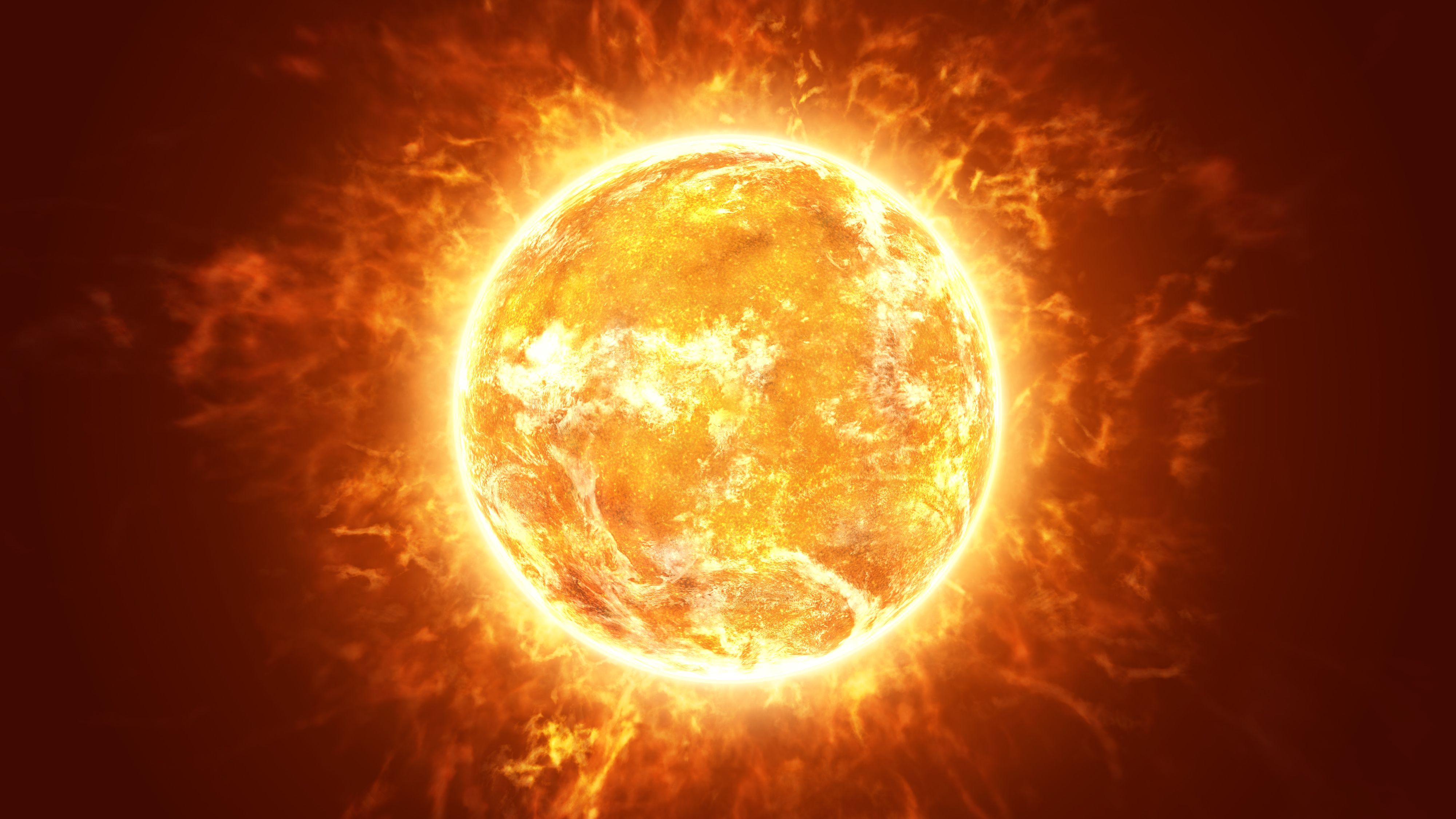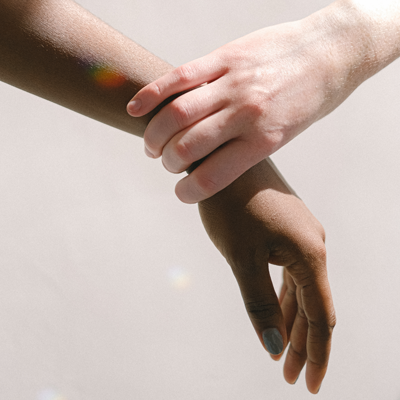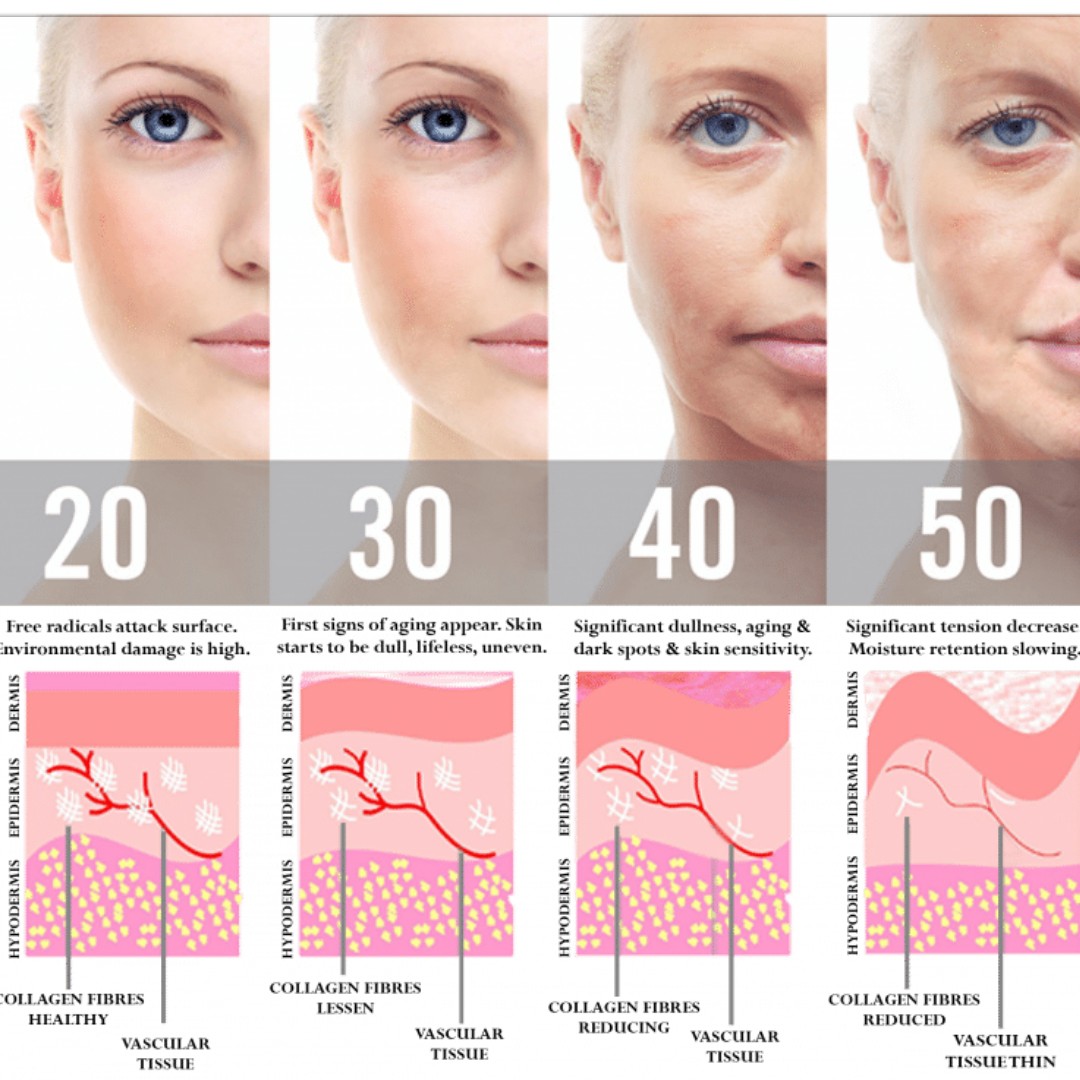
Sun-induced skin ageing
It is great to spend time in the sun. Just getting that warm sun on your head, soaking up vitamin D and getting a healthy tan. Almost everyone loves it. But spending too much time in the sun also causes skin ageing. And sun-induced skin ageing is more common than you think. Many people also underestimate the harmful effects of UV radiation. Are you curious about the consequences of sun damage, how to prevent sun-induced skin ageing and whether sun-induced skin ageing can be reversed? We tell you more about it.
What does the sun do to your skin?
It is incredibly nice to spend some time in the sun and get a tan. But besides getting a tan, much more happens to your body and skin. What does the sun do to your skin? We explain.
Creating melanin

When the sun shines on your skin, melanin is produced. This is a dye that creates the tan. Many people aim to get browner, but did you know that the tan is actually a protective layer to protect your body? It also thickens your skin. The more melanin you produce, the less likely you are to burn.
Making vitamin D
The sun naturally makes us happier. Especially after the long, grey and cold winter months, everyone is ready for warm rays of sunshine. But what does the sun do to your skin instead of just your mood? The sun on your skin makes you produce more vitamin D. This is good for your bones, hormones, teeth and immune system, among other things.
Evaporating moisture
What does the sun do to your skin besides produce melanin and vitamin D? The UVA radiation released causes you to sweat worse and moisture to evaporate. This lurks dehydration. Tip: hydrate your skin!
Aging skin
The sun and skin ageing: it unfortunately goes hand in hand. Is your skin exposed to the sun's rays frequently and for long periods of time? Then your skin breaks down collagen. This creates wrinkles and makes the skin less elastic. Does sun-induced skin ageing develop? Then your skin also becomes drier.
Read more about what collagen is and what collagen does for your skin here.
Blood vessels dilate and damage
Is your skin regularly exposed to UV radiation? Then not only does the sun cause skin ageing, but it can also damage your skin. You recognise skin damage first of all because the skin turns red. The blood vessels are dilated and because not enough melanin is produced, the skin burns. Even if you are no longer in the sun, the damage can continue for a while.
The effects of sun damage
Now that you have the answer to the question, "what does the sun do to your skin?", you might be curious what are the real consequences of sun damage. Rest assured: a one-off light burn does not immediately cause permanent skin ageing. But if you spend too much time unprotected in the sun, the consequences of sun damage are much greater.
Skin aging

80% of skin ageing is caused by the sun. If you do not protect your skin, premature skin ageing usually occurs. If you are still very young, you may think this is a worry for later. But still, we advise against going out in the sun unprotected and too often. Skin ageing is not only harmful to you, it cannot be reversed. At best, you can reduce the appearance of sun-induced skin ageing with quality skin care products.
Wrinkles and increased risk of skin cancer
As UV radiation makes the skin less elastic and drier, more wrinkles appear. So the consequences of sun damage are definitely not mild. Pigmentation spots may also appear and your skin may flake. Another consequence of sun damage is an increased risk of skin cancer. This is because UV radiation from the sun damages the DNA in skin cells, which can eventually mutate. These mutated skin cells, in turn, can lead to skin cancer. Protecting your skin is therefore also incredibly important.
Protect your skin from the sun!
We cannot say it often enough: good skin care and protecting your skin from UV radiation is incredibly important. Sun-induced skin ageing, wrinkles at a young age and an increased risk of skin cancer is something nobody wants, right? Protecting your skin from the sun can be done in several ways. First of all, it is good to protect your skin from the sun with sunscreen. Use at least SPF 30 sunscreen and even better SPF 50. Protect your face, neck, décolleté and shoulders especially well: this is where the skin is particularly vulnerable. For example, use this high-quality sun cream with SPF 60 from Sachel® and don't give sun-induced skin ageing a chance!
Make sure your sunscreen has a UVA and UVB filter and replace your sunscreen every year.
Counteracting sun-induced skin ageing
Not just applying sunscreen every two hours prevents skin ageing from the sun. It is also good to wear a hat and airy protective clothing when spending time in the sun. In addition, it is advisable to avoid the sun at the hottest part of the day, between noon and 3pm. In addition, make sure you drink plenty of water and supplement with collagen if necessary.
